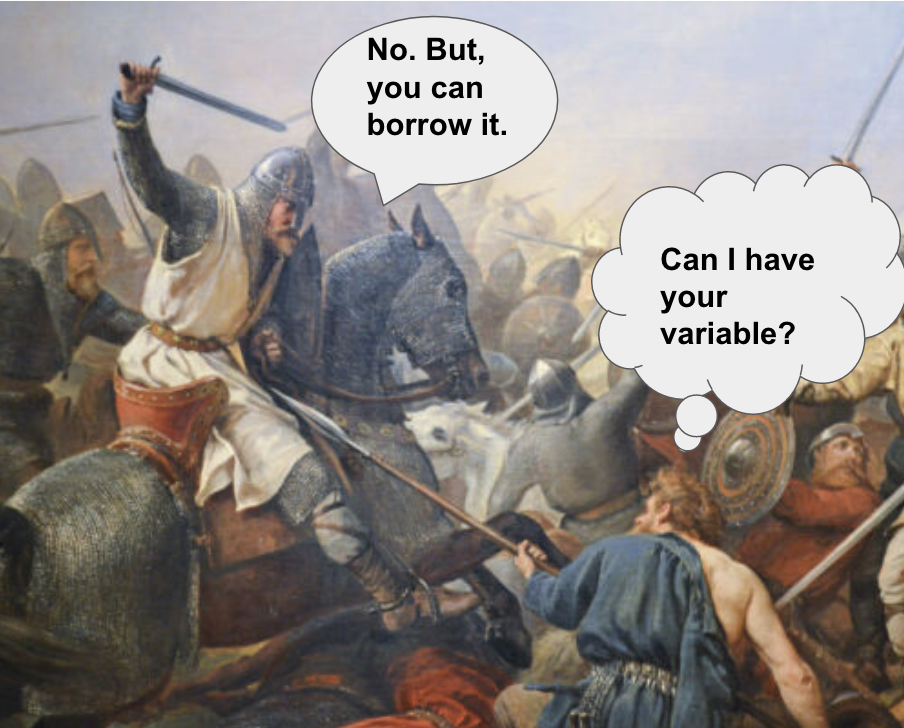
As I started to use Rust on and off, more out of curiosity than anything, I discovered some specs of gold buried down in the depths. Some of the things I’m going to talk about, well … all of it, is probably fairly obvious to most Rust folk, but it’s enjoyable to learn what new languages have to offer and ingest that knowledge into what we do, in this case, Data Engineering. There are some special things about Rust that can us all write better data pipelines and transformations.
Just like Scala brought immutability to legions of Data Engineers, Rust is going to bring Ownership and Borrowing through its memory model. Like some ancient King traveling lands throwing handfuls of coins to beleaguered subjects, groveling on the ground for scraps, such is Rust traveling the weary lands of Data Engineering.






